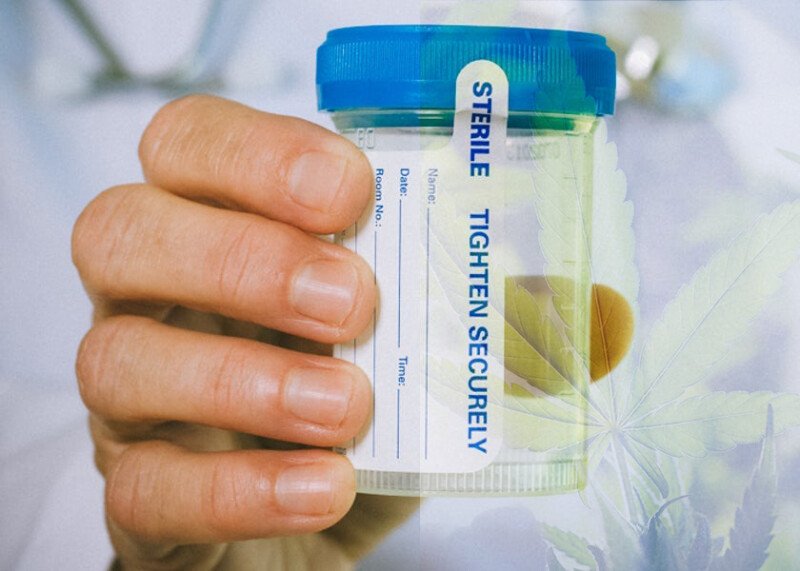Being told that you must undertake a court ordered drug screening can be intimidating. Obviously though, there are a lot of individual circumstances to think about here.
Don’t worry about the actual court ordered drug test procedure, it’s really no different to other structure drug testing like Department of Transport drug testing. The standard of drug test is exactly the same as for any other purpose, and you will go through the same process.
All that is different is that court-ordered drug tests are closely monitored for the procedure, and obviously, there are usually more significant outcomes hanging on the result than the usual problems with employment.
So let’s take a look now in detail at court ordered drug test processes and what actually happens during and after you submit your sample.
When Could You Face A Court Ordered Drug Test?
There are very certain circumstances under which you could face a court ordered drug screening, so let’s talk you through them in detail now.
1. Criminal Cases
This may be obvious, but if you’re convicted of a crime and placed on probation or parole, then regular drug testing might become part of your life. Courts want to make sure you’re staying clean and not violating any terms of your release.
This is particularly common for people with DUI or drug-related offenses. If the charges involve drugs or alcohol, expect the court to order a drug test, both to confirm if substances were involved in the crime and to monitor your compliance during any treatment or rehabilitation program.
2. Family Court Cases
When it comes to family law, drug tests can play a huge role, especially in cases of child custody rightly) or visitation disputes. If one parent accuses the other of drug use, or if the court has concerns about the children’s safety, a drug test may be ordered.
The priority in these cases is always the wellbeing of the child, and a positive test could significantly impact custody arrangements. Child Protective Services (CPS) often steps in during cases of alleged child neglect or abuse, and drug testing becomes a critical part of the investigation to determine if a parent is fit to care for their children.
3. Divorce Cases
Divorce proceedings can get messy, especially if substance abuse allegations come into play. Courts take these claims seriously. If one party accuses the other of drug use, it could lead to a court-ordered drug test.
This isn’t just about your reputation; it can influence key decisions like custody, alimony payments, and even how assets are ultimately divided. If drug use is suspected of impairing judgment or posing a risk to family members, the court won’t hesitate to act.
4. Employment Law Cases
Drug tests can also come into play in employment law cases. If there’s a workplace accident or injury, and there’s suspicion of drug use, the court may order a drug test. Employers want to ensure that substance use didn’t contribute to the incident, and these tests can be crucial in determining liability.
In workers’ compensation claims, for instance, if the employer thinks drugs were involved, testing may be required to confirm or dispute the employee’s claim. That’s why almost every company drug tests after an accident, and if the incident becomes a legal issue, further drug testing can be used on the person who caused the accident to try and deflect fault onto the individual.
5. Rehabilitation or Treatment Programs
Drug treatment courts are specialized legal programs focused on helping people with substance use disorders. If you’re in one of these programs, regular drug testing is usually conducted.
Designed to help non-violent offenders avoid jail time by going through rehabilitation instead, failing a test here can have serious consequences, like being sent back to jail or being required to attend more intensive treatment. This will obviously depend on the severity of your offence and if it’s a first or subsequent failure.
6. Civil Lawsuits
Drug tests can come into play even in civil lawsuits, and particularly in lucrative personal injury cases. If drug use might have contributed to the injury, a court-ordered test will almost certainly be ordered.
For instance, in a car accident, if there’s suspicion that the defendant was using drugs, the court could order a test to determine liability. In other civil cases, like breach of contract disputes where a drug-free clause is in place, a court may also demand testing to resolve the case.
7. Adoption or Foster Care Applications
If you’re looking to adopt or become a foster parent, drug testing is likely part of the process. Courts or adoption agencies will definitely order a test to ensure that the child is placed in a stable, drug-free environment.
Any positive test result would obviously hurt your chances of success, as the goal is to ensure the safety and wellbeing of the child. In many instances, regular drug testing is performed during the adoption or fostering process, rather than just one.
8. Mental Health Cases
Substance abuse often links strongly to mental health issues, and in some mental health court cases, drug testing is part of the solution. These courts work with individuals dealing with mental health disorders, and if substance abuse is suspected, the court may order tests to ensure compliance with treatment plans or other legal requirements.
This approach aims to rehabilitate as its goal, but failure to comply with drug testing can lead to more severe outcomes.
9. Juvenile Court Cases
If a minor is in legal trouble, especially for drug- or alcohol-related offenses, juvenile courts may order drug testing. This is to determine whether substance abuse is a problem and to guide decisions about treatment or punishment.
Again, the courts aim to steer minors toward rehabilitation rather than to punish them, but repeated failures could result in stricter penalties.
10. Protective Orders or Domestic Violence Cases
In domestic violence cases, where substance abuse might be contributing to violent behavior, courts sometimes order drug tests. If a protective order is in place and there’s a suspicion that drugs are involved, the court will use testing to assess the risk. If a legal order is in place and then drug testing is almost always used to help enforce it.
The results can significantly impact the case, influencing decisions about restraining orders, custody, and other legal protections.
Steps Taken To Order And Perform Court-Ordered Screening
In the USA, a typical court-ordered drug test procedure generally involves the following steps.
- Referral
The individual is referred by a legal authority.
- Scheduling
The individual is scheduled for an appointment with a certified professional or addiction specialist.
- Evaluation
The evaluation includes a series of questions about the individual’s substance use history.
- Physical Test
A physical drug test is conducted. This is usually a urine test, but alternatively it could be a saliva test. In very rare circumstances it could even be a hair test.
- Results
The results are analyzed and reported to the court and other parties. They will then deliberate, before notifying you of the results and next course of action.
- Follow-Up
After passing or failing, then depending on the circumstances follow-up consequences and actions will take place. There may also be follow-up drug testing that can be completely random and on the spot.
Drug test FAQs
Will I know which type of drug test is issued?
Unfortunately, you will not know which type of drug test is being issued under a court order. The only time you will find out is when you get your appointment, or meet the person conducting the test.
Will I know in advance if a drug test is going to be requested ordered?
No, you will not be told this information usually, because it’s not known until the court has decided.
How long after the order will I have to get a drug test?
The court sees that a court order drug screening requires immediacy to stop lower quality results, or a positive result earning negative. Usually, it will be 24 hours or less. Some courts, depending on the location and type, even have drug testing facilities on the site so that an immediate drug test can be conducted after it has been ordered.




